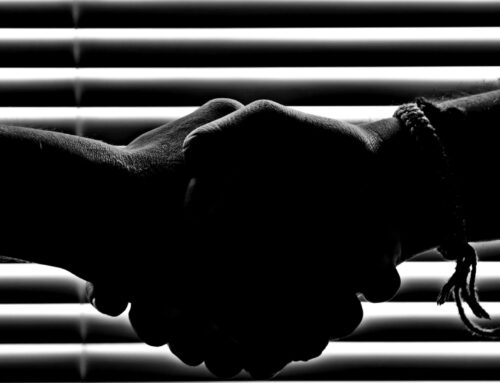A new dawn has begun online around copyright and image use infringement and it’s one that is going to land a lot of business owners in hot water if they’re unaware. Companies are using automated search technology to scan websites globally to look for copyright use infringement and seeking to charge retrospective licencing fees for their use.
A client of the firm recently learned the hard way that the all seeing eye of the internet is getting smarter, closer and more expensive when their business was served with a letter to pay thousands of dollars in retrospective licencing fees for images used on the business’ website that were found on Google, bore no copyright branding and were not available for purchase from a site like Shutterstock or Getty Images or the like.
A company located in Germany which brands itself as an “image rights management platform” sent to the client an affidavit, evidence of the image use online, notification of the alleged rightsholder of the images and an invoice payable within 14 days for retrospective licencing fees (or court proceedings would be issued).
Was it a scam? The short answer is “no”, but a lot of businesses may assume this to be the case. If you or your business receives a similar type of notice, it could be very costly to ignore.
So what should you and your business do to protect against this trap?
- Check all of your social media, website and marketing images (including photos and videos) and make sure you hold the correct licensing for the use being made of those images i.e. if they are being used for commercial use, make sure the licence held is for commercial use.
- Sites like ShutterStock and Getty Images make clear the type of licences that images sold on those sites hold.
- Don’t use images found via Google.
If your business is hit with this type of notice:
- Make sure the offending images are removed straight away to stop the clock on licensing fees accruing.
- Address the matter head on and take proactive steps to seek to settle the dispute now rather than waiting for legal fees to escalate (the losing party generally pays a large percentage of the winning party’s legal costs when proceedings are issued so the bill could end up being much larger).
- Seek to make a without prejudice offer or attempt to settle the amount owing.
- Arguments such as “any action to recover damages would likely attract compensatory damages (and not punitive damages) covering the loss of the licence fee calculated based on industry standards” may assist attempts to settle the sum owing and offer up images of a comparable nature to calculate the settlement sum offered.
There’s no one size fits all approach to dealing with this issue and we’re sure this type of detection technology will become an ever more present reality of doing business.
If you would like more information about how you can effectively protect and plan for your business, or if you’re hit with such a notice and need help settling the dispute, get in touch with our team for practical and commercial guidance.
Sofia Garcia Ladera, Consultant







